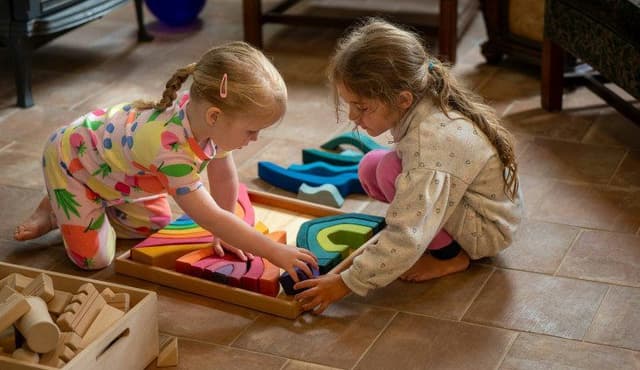Jobs News
Policy
Professional development
Government directs fee-free TAFE and more Uni places to ECEC to meet workforce demand

Freya Lucas
Oct 25, 2022
Save
Future early childhood education and care (ECEC) professionals will have greater access to professional development opportunities thanks to a commitment by the Federal Government to provide more university places and fee-free TAFE and vocational education places to meet the demand for skilled professionals.
The commitment will provide 20,000 extra places for people studying bachelor and sub-bachelor courses delivering skills that are in high-demand in Australia. The places will be available across 42 higher education providers in the following areas:
- 4,036 places in education, including 1,469 for early education teachers
- 2,600 places in nursing
- 2,275 in IT
- 2,740 in health professions like pharmacy and health science
- 1,738 in engineering.
The remaining courses will be offered in other areas of skills shortage.
The 20,000 additional places will be allocated to students under-represented at Australian universities including those from poorer backgrounds, Indigenous Australians and students from rural and remote Australia.
The five higher education providers receiving the most funding for additional places are:
- Charles Darwin University
- University of Wollongong
- Curtin University
- Edith Cowan University
- University of Newcastle.
The additional places will be for students starting next year and in 2024 with an investment of up to $485.5 million over the next four years.
The Government is also delivering 180,000 fee-free TAFE and vocational education places, with extra support for participation of women and other disadvantaged groups.
This initiative is a key Budget measure of the Albanese Labor Government and is part of the broader commitment to deliver 480,000 fee-free TAFE and vocational education places, commencing with 180,000 training places in 2023, to support industries experiencing skills shortages to be delivered in partnership with states and territories. Extra training places will be delivered in the critical skill shortage areas:
- Care (including aged care, early education and care, health care, disability care)
- Technology and Increasing digital skills
- Hospitality and tourism
- Construction
- Agriculture
- Increasing Australia’s sovereign capability in areas like manufacturing and defence.
It also comes with a commitment to provide access to priority cohorts including women and Indigenous Australians, and those living with disability.
The Albanese Government will deliver $550 million in its upcoming Budget as part of the 12-month National Skills Agreement, with funding matched by states and territories. Discussions with states and territories are underway regarding the specific funding and places in each state and territory consistent with other Federal Financing arrangements.
The decision was welcomed by Australian Childcare Alliance (ACA) President Paul Mondo, who said the additional places would “create a vital pipeline” of additional teachers for the sector.
“The single most pressing issue facing our sector, Australia-wide right now, is the critical shortage of qualified educators,” Mr Mondo said. “Without educators, families risk being forced out of their ECEC service due to the workforce shortage crisis and the educator-to-child ratio requirements.”
Mr Mondo said funding additional university places was a “fantastic first step” to expanding the early learning workforce and meeting the needs of the sector.
“There is more to be done in the immediate term to help attract and retain educators but we know that removing the cost barrier will incentivise more would-be educators to choose a career in the ECEC sector. Additionally, apprentices or trainees can now start learning – and earning – immediately,” Mr Mondo concluded.
Don’t miss a thing
Related Articles


















